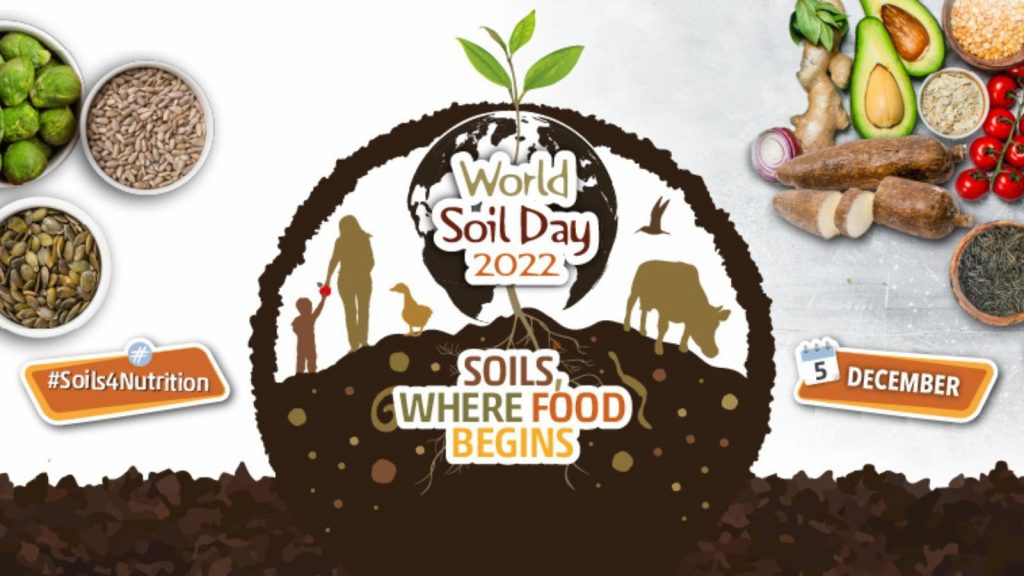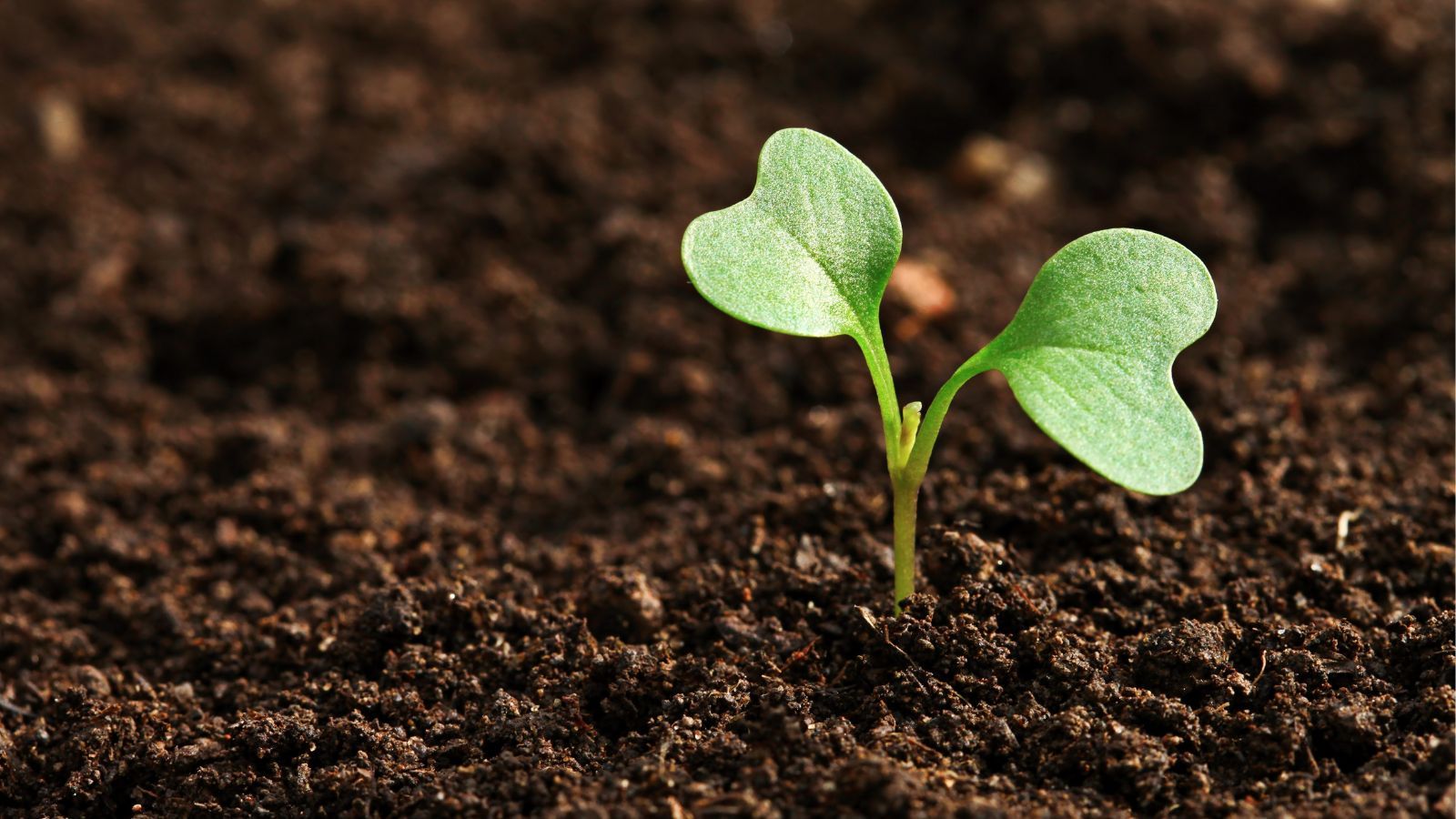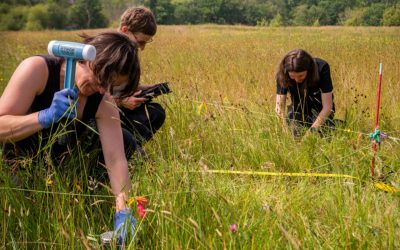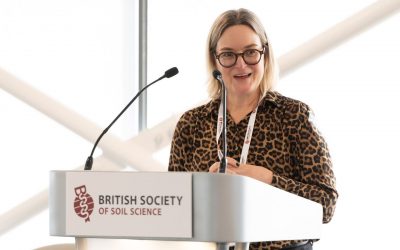As we mark another World Soil Day, this year seems to be ever more pertinent given the increased need and pressure to address climate change and other global problems that will affect the sustainable future of our planet. Lots of people may not have considered that a key solution has been right under our noses, and feet, the entire time: soil.
World Soil Day 2022, “Where food begins”, aims to raise awareness of the importance of healthy ecosystems by addressing the growing challenges in soil management, increasing soil awareness and encouraging societies to improve soil health. According to the United Nations, by 2030 the population will be around 8.5 billion people, which is an ever increasing number of mouths to feed. Coupled with this, it is well known that around 95% of the food we eat comes from soil, meaning that this substance that we all take for granted is essential to our health and the health of the planet.
However, if our soil is not managed, maintained or used sustainably, we will not be able to produce enough food or get the nutrients that we need. World Soil Day, held annually on 5 December, helps to focus attention on the importance of healthy soil and to advocate for the sustainable management of soil resources. World soil health is under pressure from several threats including erosion, loss of soil organic carbon and biodiversity, pollution, and salinisation. Soil nutrient loss is a major soil degradation process threatening nutrition and is recognized as being among the most important problems at a global level for food security and sustainability. With unprecedented and growing demands for food, water and energy, there is an urgent need to address the challenges of climate change and land degradation, whilst protecting soil as a natural resource.
Soil holds the key to our planet’s past and future and is the answer to our food, water and energy security, mitigating and adapting to climate change, the safeguarding of biodiversity, and the protection of human health. We must focus on maintaining and restoring our soils, finding solutions to meeting environmental targets, achieve climate neutrality, zero pollution, sustainable food provision and a resilient and biodiverse environment. Many of the UN Sustainable Development Goals cannot be achieved without healthy soils, sustainable land use and strong policy. At the British Society of Soil Science, we highlight this in our recent campaign, produced in conjunction with the World Congress of Soil Science 2022, a leading international soil science conference, which drew together experts, policy makers, academics, regulators and politicians to discuss soil science.
Soils that are in good and healthy condition, are biodiverse, not sealed, crusted or compacted, can store more carbon, absorb water like a sponge, improve water quality and reduce runoff from cropland. In these soils water is held for longer, before seeping downwards having been purified, contributing to groundwater formation. Sustaining life in soil is essential to ensure soil health, which supports our ability to grow food and farm effectively. Put simply, healthy soil equals a healthy planet and population.
Changing farming practices and properly understanding and managing life in soil is a long-term investment and the essence for maintaining soil health. Like us, soils need a balanced and varied supply of nutrients in appropriate amounts to be healthy. Agricultural systems lose nutrients with each harvest, and if soils are not managed sustainably, fertility is progressively lost, and soils will produce nutrient-deficient plants. Simply increasing soil organic matter alone improves moisture holding capacity and soil structure, so when it rains, more of it soaks into the ground, reducing flooding.
Addressing soil issues is a global problem and it is important that we all play our part to ensure this vital resource is fully understood and managed sustainably. There are solutions that all of us can adopt in our gardens and community areas such as removing patio slabs from soil and not using peat-based compost which we highlighted in our Stay #Grounded campaign. However, we also need strong and effective policy to ensure we are all collectively on the right track to securing the sustainable future of our planet through soils. We know this has complex challenges and barriers which will need work to overcome. The discussions at the Policy Day held at the World Congress of Soil Science in 2022 in Glasgow really put these challenges into context. It is achievable if we work together but we need action to be implemented now.
At the British Society of Soil Science, part of our strategy is to educate and inspire the next generation of soil scientists through knowledge exchange and engagement. Our office is based at Cranfield University which also happens to be the operational base of LandIS, the team who are responsible for the national soil data for England and Wales. To mark World Soil Day, we will be showcasing some of the soil explorer experiments we held at the World Congress at an event hosted by Cranfield University, where we will showcase example outreach activities. This is a great opportunity to engage with and educate students and staff; some of whom already specialise in the area of soil.
We need to come together, create knowledge, share experiences, shape agendas and find workable solutions to conserve our soils. Following on from sustainable international events and UN Climate Change Conference such as COP27 and the World Congress of Soil Science, we know that change is coming but now is time to implement action on the ground, quite literally. It is time we take a ‘ground up’ approach to protect our most valuable resource, that supports life on Earth; our soil.






